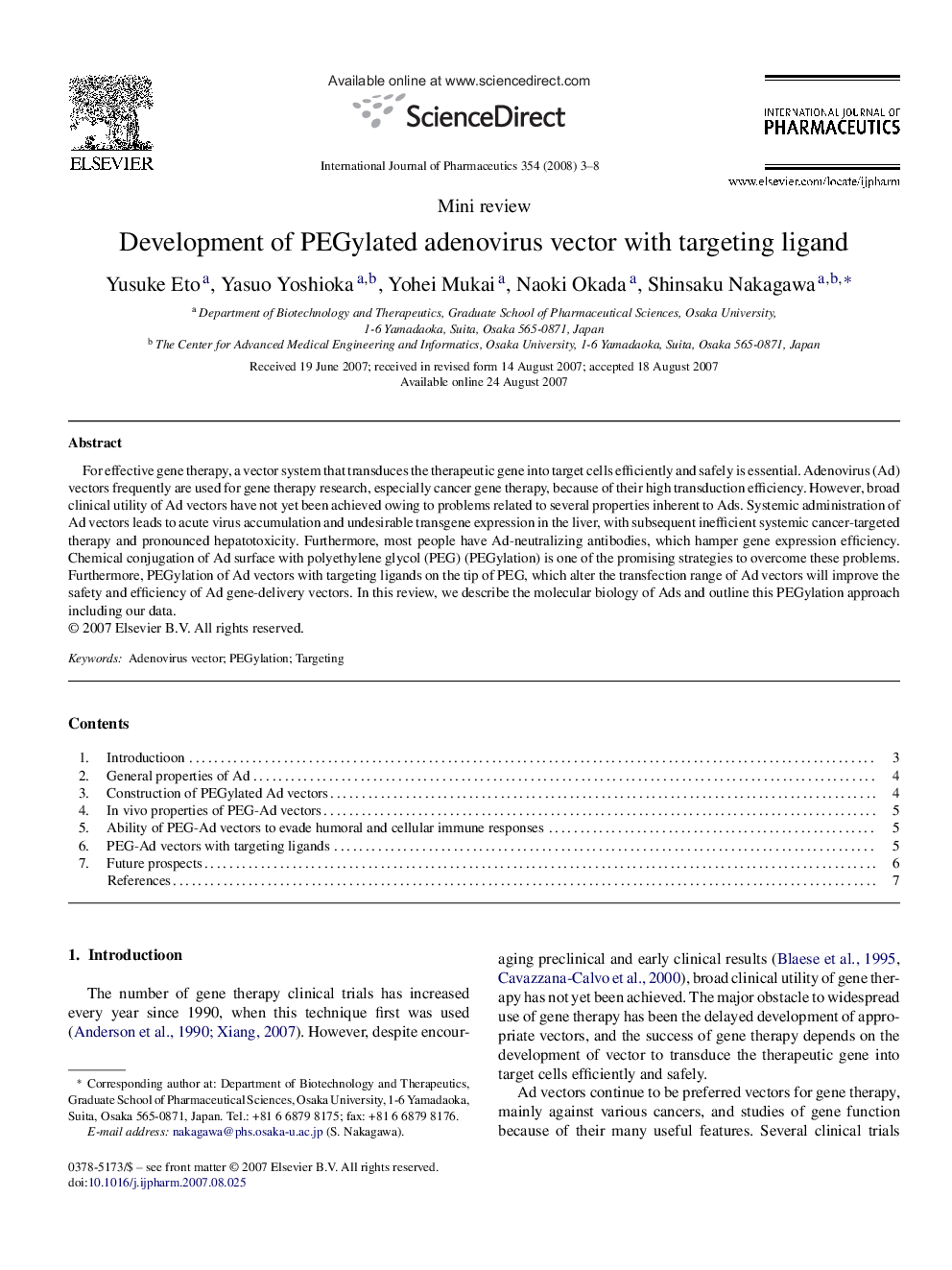| Article ID | Journal | Published Year | Pages | File Type |
|---|---|---|---|---|
| 2505521 | International Journal of Pharmaceutics | 2008 | 6 Pages |
For effective gene therapy, a vector system that transduces the therapeutic gene into target cells efficiently and safely is essential. Adenovirus (Ad) vectors frequently are used for gene therapy research, especially cancer gene therapy, because of their high transduction efficiency. However, broad clinical utility of Ad vectors have not yet been achieved owing to problems related to several properties inherent to Ads. Systemic administration of Ad vectors leads to acute virus accumulation and undesirable transgene expression in the liver, with subsequent inefficient systemic cancer-targeted therapy and pronounced hepatotoxicity. Furthermore, most people have Ad-neutralizing antibodies, which hamper gene expression efficiency. Chemical conjugation of Ad surface with polyethylene glycol (PEG) (PEGylation) is one of the promising strategies to overcome these problems. Furthermore, PEGylation of Ad vectors with targeting ligands on the tip of PEG, which alter the transfection range of Ad vectors will improve the safety and efficiency of Ad gene-delivery vectors. In this review, we describe the molecular biology of Ads and outline this PEGylation approach including our data.
